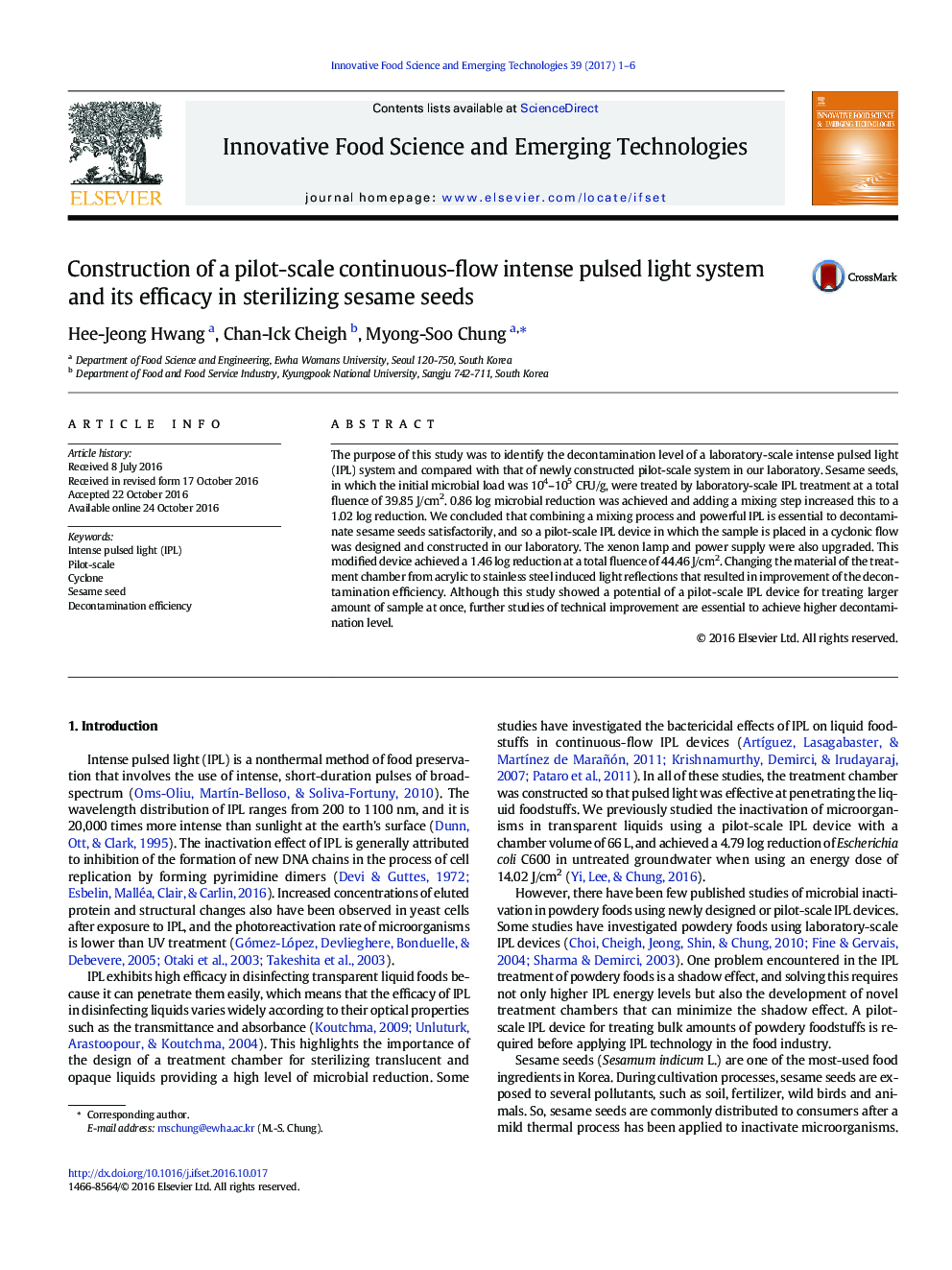| Article ID | Journal | Published Year | Pages | File Type |
|---|---|---|---|---|
| 5521840 | Innovative Food Science & Emerging Technologies | 2017 | 6 Pages |
â¢Pilot-scale continuous IPL device was self-designed and constructed in this study.â¢The cyclonic flow helped to ensure that more sides of the sesame seeds can be exposed to the IPL.â¢Pilot-scale IPL device has a potential as a decontamination method for ensuring the microbial safety of sesame seeds.
The purpose of this study was to identify the decontamination level of a laboratory-scale intense pulsed light (IPL) system and compared with that of newly constructed pilot-scale system in our laboratory. Sesame seeds, in which the initial microbial load was 104-105Â CFU/g, were treated by laboratory-scale IPL treatment at a total fluence of 39.85Â J/cm2. 0.86 log microbial reduction was achieved and adding a mixing step increased this to a 1.02 log reduction. We concluded that combining a mixing process and powerful IPL is essential to decontaminate sesame seeds satisfactorily, and so a pilot-scale IPL device in which the sample is placed in a cyclonic flow was designed and constructed in our laboratory. The xenon lamp and power supply were also upgraded. This modified device achieved a 1.46 log reduction at a total fluence of 44.46Â J/cm2. Changing the material of the treatment chamber from acrylic to stainless steel induced light reflections that resulted in improvement of the decontamination efficiency. Although this study showed a potential of a pilot-scale IPL device for treating larger amount of sample at once, further studies of technical improvement are essential to achieve higher decontamination level.
